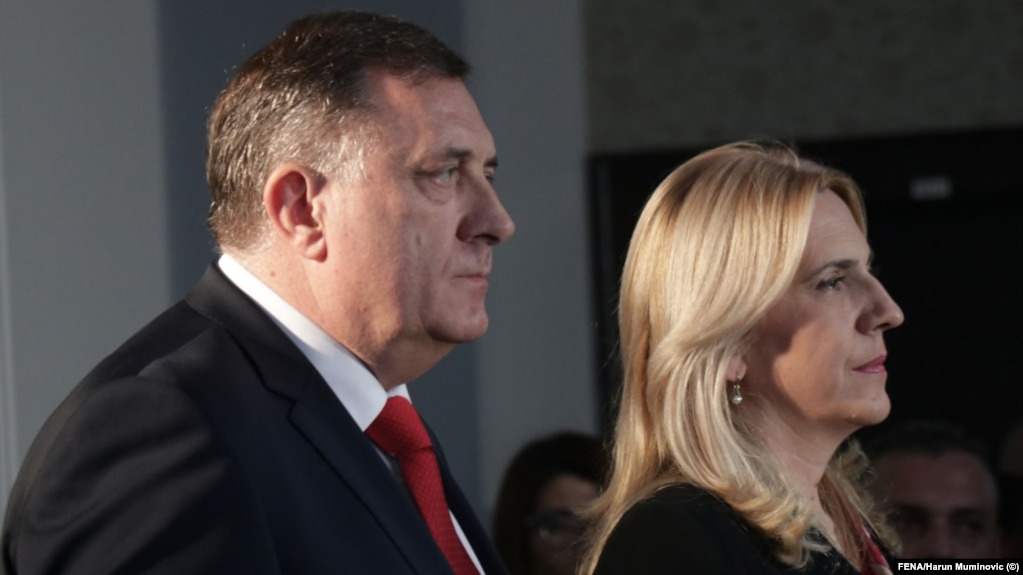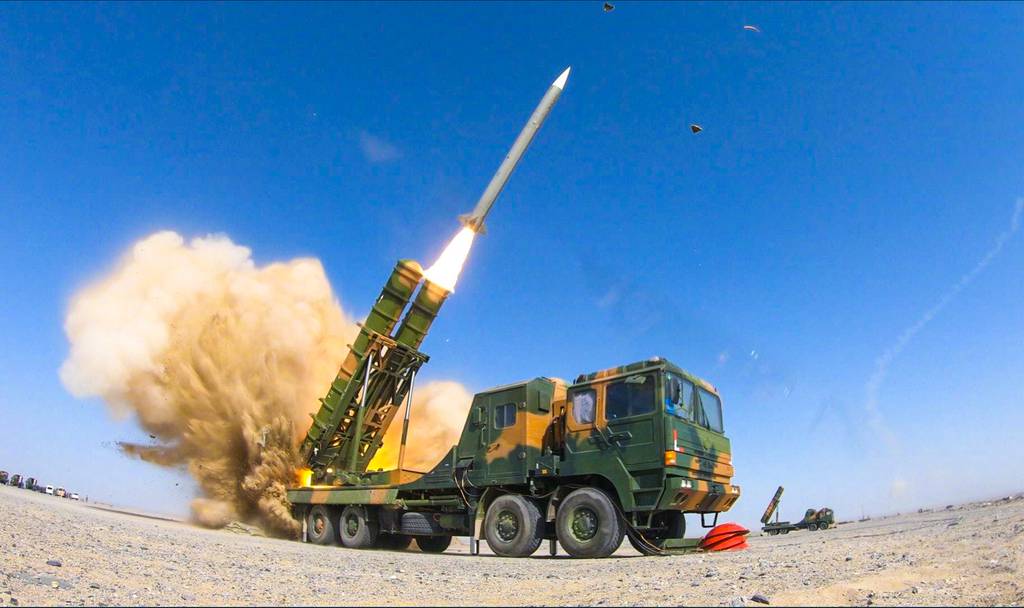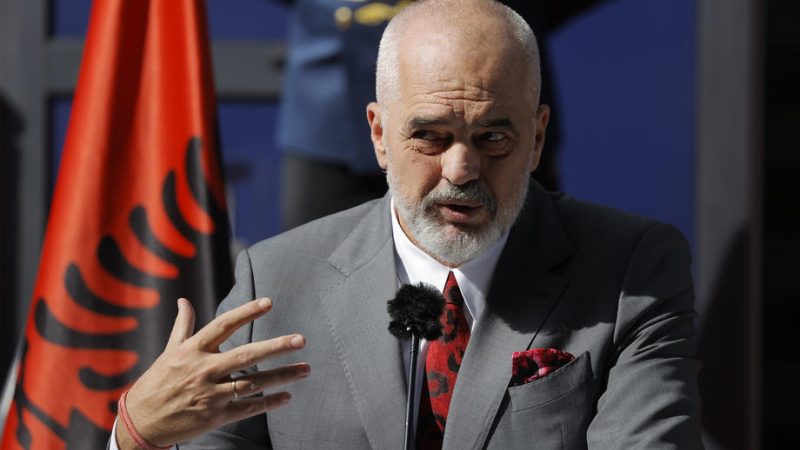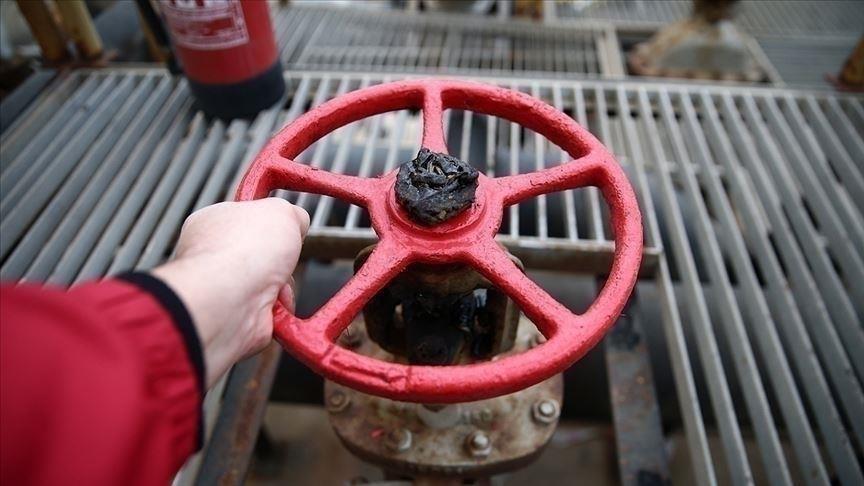Press Reviews
April 2022
International Media Digest
SERBIAN PRESIDENT VUCIC RE-ELECTED IN A LANDSLIDE VICTORY
The Serbian populist President Aleksandar Vucic and his Progressive Party (SNS) claimed a landslide victory at the general elections in the Balkan country at the beginning of April, a result confirming also the vast approval of electors for the policy conducted by Vucic in the international field.
Serbia has set the entry into the European Union as a strategic goal, but cultivates deep relations with Russia and China. Although Brussels pressured Belgrade to adopt sanctions against Moscow, Belgrade refuses to punish its historical ally. However, Serbia voted in favour of two UN resolutions condemning the Russian aggression against Ukraine. Nonetheless, the European Union expects Serbia to align with its sanctions against Russia or impose similar national measures, the European Commission reiterated this month. The Commission noted that the EU might also be taking “important decisions” in relation to Serbia based on Belgrade’s commitment to its values and principle.
However, the ties with Moscow appear to be hard to unravel for Belgrade. Russia is providing most of its oil and gas to Serbia and Moscow supports Serbia’s claims over Kosovo, its former southern province that declared independence in 2008. Serbs consider Russia as their strongest ally, even if the European Union is by far the greatest investor in the country. A recent survey has revealed that around half of Serbia’s citizens support EU accession, in comparison to 90%of Montenegrins, 77%of Albanians and 74%of North Macedonians.
According to official elections results, Vucic won a second term as president by winning almost 60% of votes in the first run. At the concurrent parliamentary elections, Vucic’s SNS prevailed with almost 43% of votes. Critics and opposition have accused Vucic of autocratic tendencies. Media freedom and freedom of expression in Serbia have been further deteriorating, even though there have been some positive developments lately. According to Freedom House, Serbia is currently a “partly free” country in which the ruling Serbian Progressive Party has been steadily eroding “political rights and civil liberties, putting pressure on independent media, the political opposition, and civil society organisations” since 2012 when it took over. Yet, Serbian voters decided that Vucic and his men should rule the country for another five years.
FOR THE BALKANS, A SIGNIFICANT ECONOMIC SPILL-OVER FROM THE WAR
The war against Ukraine will also have an impact in the Western Balkans, international financial organisations and think tanks forecasted in April, warning of a growth slowdown, widespread financial stress, high inflation and even food insecurity.
In the Balkans, growth is forecasted “to decline to 3,2% in 2022, as spill overs from the war impact the subregion primarily through commodity channels,” the World Banks said in its latest Europe and Central Asia Economic Update. In the region, even countries with minimal economic ties to Russia will suffer and remain vulnerable to the fallout of the conflict. Some countries in the Balkans have been more susceptible to shocks from the war, such as “Montenegro, for 11% of its FDI, and Serbia, for 5% of its exports and 5.4% of its imports in 2021,” the World Banks noted.
Not only Serbia and Montenegro, but all countries in the area will record a slowdown in their growth this year due to the war. This year, Albania will record a 3,2% growth after an 8,6% growth in 2021. Bosnia and Herzegovina will grow 2,9 % 2022 after 6,5% in 2021. Growth in Kosovo will reach 3,9% this year compared to 9,1 % in 2021, while in North Macedonia the economy will grow only 2,0% compared to 4,0% in 2021. The conflict could severely impact Serbia and Montenegro, the World Bank forecasted, with growth reaching respectively 3,2 and 3,6%, compared to 7,4 and 12,4% last year.
Furthermore, severe disruptions in energy supplies from Russia, in a region highly dependent on Moscow for oil and gas, could cause economic upheaval. Western sanctions and the stop of the flights from Europe to Russia will also impact the tourism sector, damaging countries such as Croatia and Montenegro, the European Bank for Investments and Reconstruction (EBRD) said in another report. EBRD slashed the forecast of growth for the Balkans by 0,9% on average.
Inflation will also be a concerning issue in a region where poverty is still widespread and where the increase in the cost of essential commodities such as food, oil, and gas might lead to social unrest. As a confirmation of the seriousness of the situation, the EU will address rising wheat and fertiliser prices and potential food shortages in the Balkans with “food diplomacy” to counter Russia’s narrative on the impact of its Ukraine invasion and food insecurity.
Further News and Views

Bosnian Serb leader Dodik was sanctioned by the UK
After the United States, also the United Kingdom decided to impose sanctions on Bosnian Serb leader Milorad Dodik and a second influential politician, the current President of the Bosnian Serb entity Republika Srpska, Zeljka Cvijanovic. Cvijanovic and Dodik, currently the Bosnian Serb members of Bosnia’s tripartite presidency, were sanctioned “for their attempts to undermine the legitimacy and functionality” and “undermining the hard-won peace in Bosnia and Herzegovina.” UK sanctions include travel bans and asset freezes. “Emboldened by Russia’s undermining of the international rules-based system, both individuals have used their positions of authority to push for de facto secession of Republika Srpska,” the UK government said.
Reuters, UK Government, Kathimerini

Serbia acquires Chinese defence system, considers French jets
Serbia, a country that aspires to enter the EU but keeps a strong relationship with Russia and China, has acquired a sophisticated Chinese-made anti-aircraft system for its military (the FK-3, an export version of the HQ-22 Red Banner-22; top speed of Mach 6, but maximum range reduced to 150 kilometres). Several Chinese Air Force heavy cargos landed in Belgrade to deliver the missile system, prompting concerns in the EU, the USA and neighbouring countries, particularly Kosovo. By delivering the anti-aircraft weapons, China “carried out a demonstration of force” in the Balkans and Europe, Serbian military analyst Aleksandar Radic said. In 2020, Washington warned Belgrade that if it wanted to join the EU, Serbia should align its military equipment with Western standards. Belgrade is allegedly planning to purchase Rafale fighter jets from France, President Aleksandar Vucic said. The move could be understood as an attempt from Belgrade to distance itself from Russia.
Fox News, Defence News, South China Morning Post, Reuters

Albania could push for ‘decoupling’ from North Macedonia
Suppose the European Union, due to the Bulgarian veto, does not give the green light for opening accession negotiations with Albania by June. In that case, Albanian Prime Minister Edi Rama warned that Tirana will ask for a ‘decoupling’ of its European accession path, meaning to ask Brussels to give the green light just to Albania, without waiting for the lifting of the Bulgarian veto against North Macedonia. “This will happen only if in June the negotiations for Albania are not formally opened due to Bulgaria,” Rama said. Bulgaria needs to lift its veto on North Macedonia’s EU integration by June, said EU Enlargement Commissioner Oliver Varhelyi. However, although Sofia and Skopje have been intensively negotiating for months, there are no signs this will happen during the French presidency of the EU.
Politiko, Exit
Monthly Analysis
MOSCOW HALTS GAS DELIVERIES TO BULGARIA, INCREASINGLY MEDDLING IN
BOSNIA AND HERZEGOVINA

Russia appears to be increasingly active in weakening or even destabilising countries in the Balkans, which could be seen as part of a larger retaliation plan against Western sanctions and military aid provided by European countries to Ukraine. However, European Union member states and the United States are prepared to react to the challenge. The ‘weak’ links that Russia targeted first are: Bosnia and Herzegovina, still deeply divided along ethnic lines and in the middle of a severe political crisis since 2021, and Bulgaria, almost completely dependent on Russian gas and oil.
At the end of April, Moscow announced that Russian energy giant Gazprom was cutting gas deliveries both to EU and NATO members Poland and Bulgaria, in a move that was read like an open “blackmail” to European capitals and Brussels. Russia justified the move as an answer to Poland and Bulgaria’s alleged unfriendly steps in the “economic sphere” and their refusal to pay in roubles. “Starting on April 1, payments for gas need to be made using new bank details, about which the counterparts were informed promptly,” Gazprom said. Bulgarian Prime Minister Kiril Petkov said that the Russian move was “a gross violation” of its contract with Russian energy giant Gazprom.
Bulgaria and almost the entire Balkan region could be severely affected by a disruption in the supply of gas and oil from Russia, the World Bank warned this month. According to official data, the region receives 67% of its natural gas imports from Russia, with Bosnia and Herzegovina, North Macedonia and Serbia completely reliant on Russia, via Bulgaria, for their natural gas supply.
However, the EU reacted quickly after Moscow stopped gas delivery to Sofia. The interruption of gas supplies to Bulgaria and Poland is “another provocation from the Kremlin,” Ursula von der Leyen, the president of the European Commission, said. “Both Poland and Bulgaria are now receiving gas from their EU neighbours,” von der Leyen added, noting that “the era of Russian fossil fuels in Europe will end,” together with Moscow’s capabilities to blackmail or pressure European countries through fossil fuels dependency.
On a separate note, Moscow continued to exert its influence in Bosnia and Herzegovina (BiH). It did so after the High Representative of the international community (OHR) in BiH, Christian Schmidt, suspended a law seen widely as an attempt by Republika Srpska (RS), the Bosnian Serb entity, to allow the RS to take over property owned by the central government in its territory. “State Property may be disposed of only by the State of Bosnia and Herzegovina, as its titleholder, in accordance with the provisions of this Law,” the OHR decided, enraging the pro-Kremlin Bosnian Serb leadership. Schmidt’s Office is tasked with overseeing the respect of the Dayton peace agreements.
“The best sons of the Republika Srpska did not die” in the war in the 1990s “so that the unelected German Christian Schmidt would spend what they gave the most for,” their life, Bosnian Serb nationalist leader Milorad Dodik said. Since last summer, Dodik has stepped up threats to secede from Bosnia. As a direct retaliation, Moscow, an ally to Bosnian Serbs, is allegedly working on stopping financing the OHR, local media reported. Previously, Russia said through its embassy in Sarajevo that the West’s attitudes in Bosnia could cause “destabilisation”, raising fears of a spill over from the Ukraine conflict in the Balkan country.
Undermining the role of OHR could lead Bosnia to a more profound and more dangerous crisis. However, if Russia suspends its part of the financing to the OHR, “we are engaged with a variety of stakeholders in this on contingency planning,” US Secretary of State Antony Blinken said. “Some kind of international force with an adequate mandate is essential to maintaining a safe and secure environment in Bosnia and Herzegovina”, Blinken anticipated.
Russia also reasserted its influence and pressure on Serbia after Belgrade voted in favour of two UN resolutions condemning the Russian aggression against Ukraine. “We record the statements of Serbian politicians regarding the pressure that is being exerted on them; we also record the statements of the Serbian side that Russia is their friend. Maybe we have different views on friendship”, Russian Foreign Ministry spokesperson Maria Zakharova said.
The Insight Angle

MARTA SZPALA
Senior Fellow
Central European Department at Centre for Eastern Studies (OSW), Warsaw
Do you think the war against Ukraine could destabilise the Western Balkans in the long run? And do you think Russia has a real interest in rising tensions in the region?
Russia in recent years has been a spoiler in the Western Balkans and has been trying to prevent EU and NATO expansion in the region, but its ability to provoke conflicts in the region is very limited. Moscow makes use of recurrent tensions, disillusionment with the West and corruption-prone leadership, but its influence in the region is mainly based on fact that local elites perceived Moscow as a valuable partner to counterbalance West influence and as an ally in pushing for and protecting their interests.
I think that Vladimir Putin hoped that the crisis in the Balkans parallel to the war in Ukraine would discourage the West from actively engaging in assistance to the government in Kyiv and will divert attention from what is happening in the east especially as some local leader as Milorad Dodik hoped that after the successful war in Ukraine, Russia would help Republika Srpska to gain independence. However, the military operation has clearly shown Russia’s weakness and lack of modern military capabilities. Due to the strong and unified reaction of the West, Moscow is now isolated in the international community. That significantly reduced Russia’s capabilities to support local partners in political, economic and military spheres. Consequently, local actors are less keen to conduct actions that would destabilise the region in Russia’s interest, at least for the moment. However, the long-term geopolitical consequences of this war for the Western Balkans are still an open issue as its final outcome is still unknown.
Serbia remains one of the few states that did not introduce sanctions against Moscow. After Vucic’s re-election, do you think Belgrade will have to change its course or will the dependency on Russian oil and gas and the historical ties with Russia prevail?
For the Serbian authorities, who for years have consistently stoked pro-Russian sympathies and anti-Western and anti-NATO resentments, a U-turn in foreign policy and retreat from supporting Russia is a very difficult task as the majority of the population is against it.
However, if Russia is permanently internationally isolated, it will cease to be an effective defender of Serbian interests, especially about Kosovo and Bosna and Hercegovina. Once Western restrictions were implemented, the benefits of economic cooperation also decreased significantly and the policy of ensuring energy security and access to cheap fossil fuels by close ties with Russia is a failure. Moreover, Belgrade’s attitude towards Russia’s aggression negatively affects Serbia’s credibility as an EU candidate, and regional leader as its closest partner – Albania and North Macedonia – condemned Russian aggression. The West also started to pay more attention to growing Serbian revisionism in the form of the idea of Srpski Svet (Serbian World), promoted by governing elites. Now, we can observe a change in Russia’s narrative in pro-government tabloids. It could be at first sight that Belgrade will distance from Moscow. However, some parts of governing elites owe considerable economic gains to cooperation with Russia. The condition of gas supplies in the new contract with Gazprom is currently under negotiation and the composition of the new government will give a clearer picture of how Serbia is heading – West or East.
In Bosnia, Bosnian Serb leader Milorad Dodik is also blocking BiH sanctions against Russia. At the same time, the Russian embassy is more and more active in undermining the work of the OHR and in supporting the secessionist moves of Banja Luka. Are you concerned about the country’s situation, taking into account the general elections planned this year?
Not only Milorad Dodik tried to take advantage of the lack of West interest in the region to proceed with the secession of Republika Srpska. Also, Dragan Covic – the leader of the Croatian nationalist party HDZ BH, has been pushing for creating a “third entity” by threatening to boycott the elections. Using his position as an EU and NATO member, Zagreb is strongly supporting him in achieving this goal. Both US and the EU seem to be aware of the risks to this fragile country institution of Bosna and Hercegovina since the military present in this country was increased but still has no clear strategy regarding Bosnia’s future. Moreover, the EU mission in BH is also at risk as Russia will most probably block the extension of its mandate at the United Nations this fall. This situation also significantly challenges Dodik ahead of the election. He always won the election by increasing the interethnic tensions to mobilise voters. In the current circumstances, this would likely provoke a sharp reaction from the West, but being afraid of losing power, he can continue pulling Respublika from national institutions, endangering the stability of the country.
French President Macron was re-elected in April. Could we expect an acceleration of the EU integration process in the Balkans during the French presidency of the EU? And how dangerous are new delays on this front?
The region urgently needs to renew the engagement of UE and NATO The credibility of the enlargement policy has to be rebuilt. Unfortunately, despite many declarations of importance of the Western Balkans from UE officials and politicians of the member states these words are not translated into actions. Moreover, there is also high risk that the war on Ukraine will further decrease the EU’s capacity for active engagement in the region.
In past years France was very reluctant toward enlargement blocking not only the opening of negotiations with Albania and North Macedonia but also visa liberalization for Kosovo, which was very detrimental to the credibility of EU policy towards the region. Paris approach to candidate countries is also very transactional – it is visibly less critical towards these, with whom has a very profitable economic cooperation, that is Serbia. France never pays much of attention to genuine democratic transformation in the region. So unfortunately, I don’t expect much from the French presidency. In the absence of active EU engagement, Balkan societies will become more disillusioned and frustrated, the region’s democratic decline will accelerate and state capture will be reinforced. Moreover, the ability of the EU to influence situation in the region will decline further, and Western Balkans societies will become more prone to Russian anti-western propaganda.
The Balkans are still out of the EU. The region is highly dependent on Russian energy, the Chinese influence in the area is growing, and inflation is rising. Could we expect a significant economic and social crisis in the region without more robust EU support? What are the possible consequences?
Contrary to public perception, the economic influence of Russia in the Balkans is relatively small as EU countries are the most important trading partners and major investors. Only Serbia is an exception as Russia accounts for 3,9% of Serbian exports and 5,9% of its imports in 2021. Although Bosnia and Hercegovina, North Macedonia and Serbia are highly dependent on Russian gas, only the latter needs larger amounts of gas.
But the region needs emergency support to the energy sector since all of them are supplied via the Turkish Stream from Bulgaria, and Russia decided to halt the supplies to this country, so the security of gas supply to the region is at risk. Without EU support, investments in energy diversification and infrastructure that reduce the dependencies of the region on Russia and ensure affordable energy will be impossible.
Moreover, there is also a severe risk that spill over effects from the war in Ukraine – higher energy prices and shortages of food would lead to profound economic and social hardship, given negative effects of the pandemic have already weakened the fragile economies of the region. In Albania and Montenegro tourism sector, which generate a large part percentage of GDP, is expected to be a hard hit as the number of Russian and Ukrainian tourists increased significantly over the last few years. This economic crisis may fuel identity politics, exacerbate populism and strength anti-European forces, especially if the region is left without significant EU support. Consequently, the Western Balkans can become more authoritarian, more unstable and far less palatable to the EU and without any opportunities for swift democratisation in the foreseeable future.

Stefano Giantin
Journalist based in the Balkans since 2005, he covers Central- and Eastern Europe for a wide range of media outlets, including the Italian national news agency ANSA, and the dailies La Stampa and Il Piccolo.

